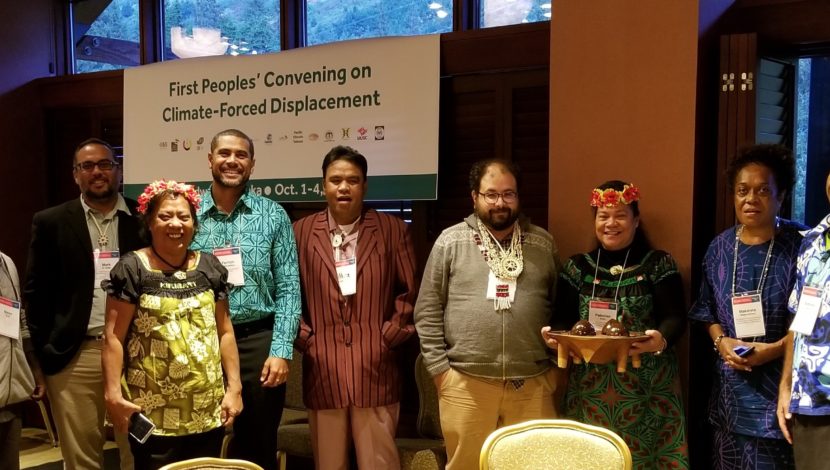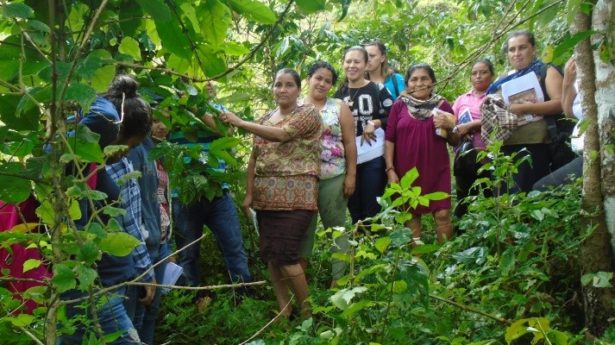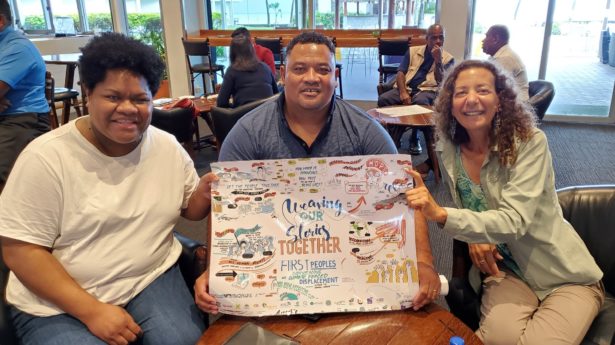The Unitarian Universalist Service Committee advances human rights through grassroots collaborations.
Fighting for Survival 5 Years After the Paris Agreement

By Joseph Sikulu, Interim Pacific Managing Director, 350 Pacific & Pacific Climate Warriors, and Salote Soqo, UUSC on December 11, 2020
On December 12, 2015, 197 world leaders drafted the Paris Agreement, signifying a commitment to keeping global temperature increases to below two degrees celsius and to make every effort to increase this limit further to one and a half degrees celsius. Today, 189 out of 197 countries have ratified the agreement, and 188 countries have submitted plans on how they will contribute to meeting its goals. According to this analysis, the pledges announced by various governments so far show that the world is on track to meeting the agreements’ one and a half degrees Celsius target.
As Pacific peoples, we cannot overstate the significance of the Paris Agreement. It drives climate action across the globe and provides a renewed platform for multilateral cooperation to address the climate crisis. While progress is underway, the climate crisis remains an existential threat to many communities worldwide, including UUSC’s partners in the Pacific islands who are grappling with the realities of climate-forced displacement.
The harsh realities of the climate crisis have dictated the region’s engagement at the international fora, where the Pacific has played a critical role in the progress of global climate diplomacy. Along with other developing island nations, the Pacific was an essential voice in raising awareness about the moral imperative for industrialized countries to pay their fair share and address equity and human rights principles. The advocacy of Pacific islanders on the limits of their coping with the climate crisis led to the establishment of loss and damage as part of the global climate change agenda and the inclusion of the one and a half degrees Celsius limit in the Paris Agreement.
The Pacific peoples’ lived experiences, moral leadership, and calls for equity and rights protection are an absolute necessity and a cornerstone in their fight for survival. These tenets are more important now than ever before as the United States indicates its plans to rejoin the Paris Agreement and raise climate ambitions domestically. As nations rebuild and recover from the pandemic, the climate crisis will become irreversible the closer we get to mid-century.
These last five years have also highlighted some key lessons that we should take heed of:
- Participation: The role of the Pacific and other developing island nations and their civil society is critical in shaping climate diplomacy. More resources and support are needed for their engagement, and space in international climate talks must be created for their leadership. Further, these spaces need to be made more accessible and allow for effective engagement of frontline communities.
- Pandemic: The Paris agreement did not imagine the threats of a pandemic on top of the climate crisis. COVID-19 has made already vulnerable countries even more so. But there is an opportunity to rebuild societies in a climate-just way.
- Partnership: The outgoing U.S. administration rolled back decades of domestic and international progress on climate action within four short years. We need more robust measures to keep these events from happening again and for more collaboration between various social and political movements.
To mark the 5th anniversary of the Paris Agreement, UUSC and the Pacific Climate Warriors invite you to watch this short film titled “Fighting for Survival,” and we invite you to visit this website to take action to support the Warrior’s ‘Fighting for Survival’ campaign.
*UUSC is partnering with the Pacific Climate Warriors to mobilize Pacific Islanders to inform the Pacific’s agenda at the international climate negotiations in Scotland in 2021.
***
About UUSC: Guided by the belief that all people have inherent worth and dignity, UUSC advances human rights globally by partnering with affected communities who are confronting injustice, mobilizing to challenge oppressive systems, and inspiring and sustaining spiritually grounded activism for justice. We invite you to join us in this journey toward realizing a better future!
Photo Credit: UUSC

